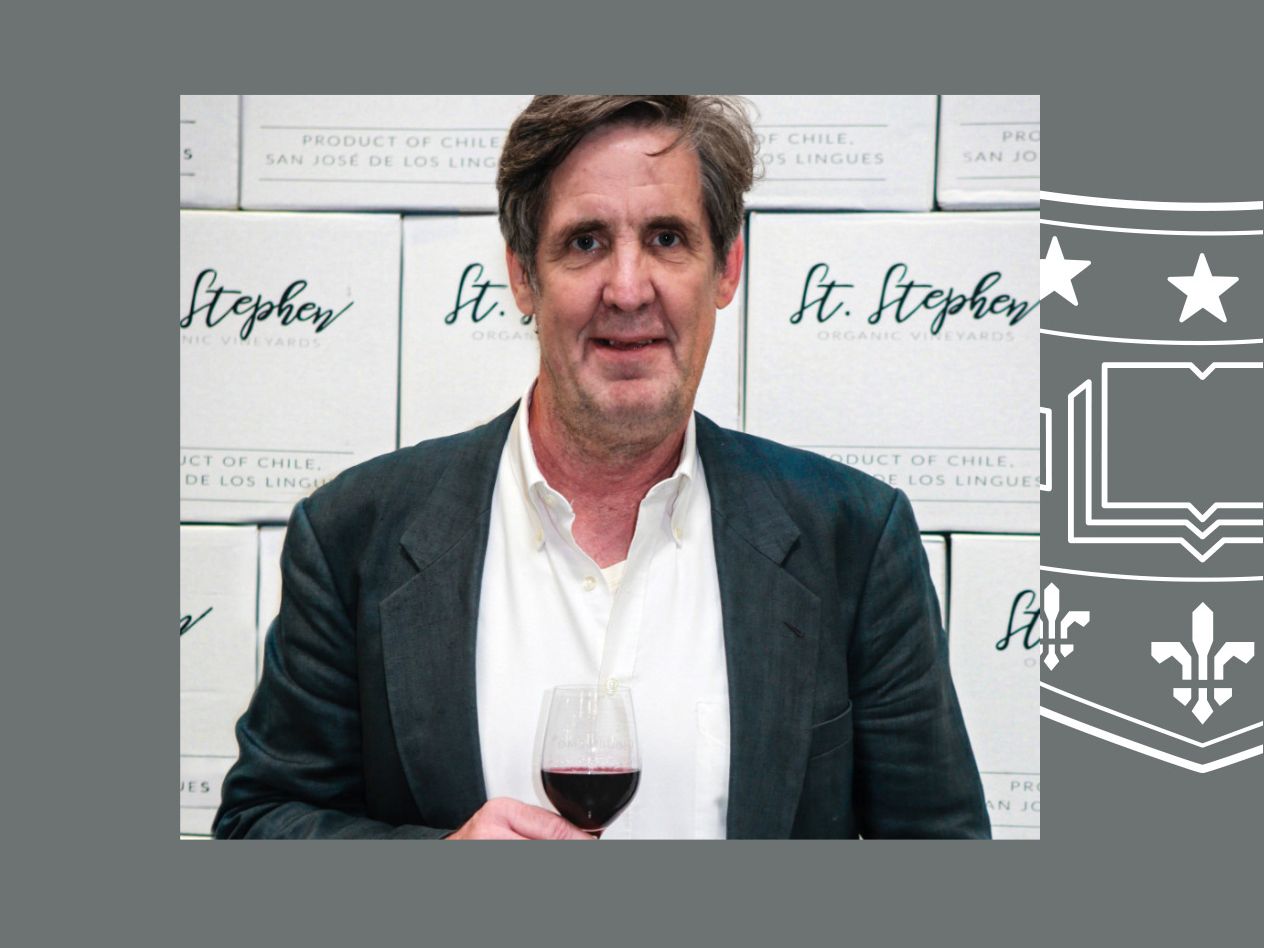Olin PMBA alum (and vintner) addresses UN climate conference
- March 11, 2020
- By Guest Author
- 2 minute read

Two phrases that typically aren’t found together are “excellent wine” and “protecting the planet.” But to WashU Olin alumnus Tim Edwards, PMBA 1990, they couldn’t be any more related.
By Megan Oliver, Special to Olin Blog
Since his time at Olin, Tim Edwards has exemplified the core values of integrity, leadership, and excellence with his role as owner of the prolific St. Stephen Organic Vineyards. As a result, last month he was invited to address the United Nations Climate Change Division’s Annual Conference in Madrid about his ideas to finance actions to globally mitigate climate change.
Creating really great wine, with a mission
After leaving St. Louis, Edwards traveled across the world, ending up in the Colchagua Valley wine region of Chile—a country famous not only for its spectacular views and climate but also for its auspicious ability to make wine. There, Edwards purchased the land that would become St. Stephen Organic Vineyards.
In line with Olin’s entrepreneurial pillar of excellence, the primary goal of the vineyard was first and foremost to make the best possible organic wines, something specifically possible in this small corner of the world.
See Tim Edwards’ address to the UN climate conference. The address begins at the 3:29 mark.
Boasting a similar distance from the equator as Napa Valley, Wine Enthusiast Magazine named the Colchagua Valley the best wine region in the world in 2005. Founding his business in this particularly capable region of the planet not only emphasizes his entrepreneurial spirit but also his commitment to being globally oriented, another pillar in Olin’s mission.
The secondary mission of the vineyard was to do something that betters this world. Staying true to the values-based and data-driven pillar of Olin’s mission, Edwards wanted to live up to his social and moral obligations in the best way he knew how.
After researching the effects of global emissions on the environment, Edwards decided that proceeds from every bottle of wine sold from St. Stephen would benefit organizations that are committed to helping the planet.
The idea that we could give a little bit of money to help it seems like the absolute least we could do.
—Tim Edwards
Speaking at the United Nations
This was the same philosophy that inspired Edwards’ speech at the UN Climate Change Conference, where countries negotiated ambitious plans to limit global warming. In Edwards’ address, he states his belief that the world already has the solutions to the crisis that faces us, but the problem lies in financing these changes.
Very simply, his idea relies on goodwill from major corporations and fostering influential consumer behavior. In order to finance much-needed change, Edwards calls upon Fortune 500 companies to fulfill the same social and moral code he has led by. He explains if Fortune 500 companies contribute, “1/100th of 1% of their revenue stream, that would be $1.4 billion.”
While Edwards understands “that won’t solve the problem,” he does believe “it’s a big step forward.”
Media inquiries
For assistance with media inquiries and to find faculty experts, please contact Washington University Marketing & Communications.
Monday–Friday, 8:30 to 5 p.m.
Sara Savat
Senior News Director, Business and Social Sciences
